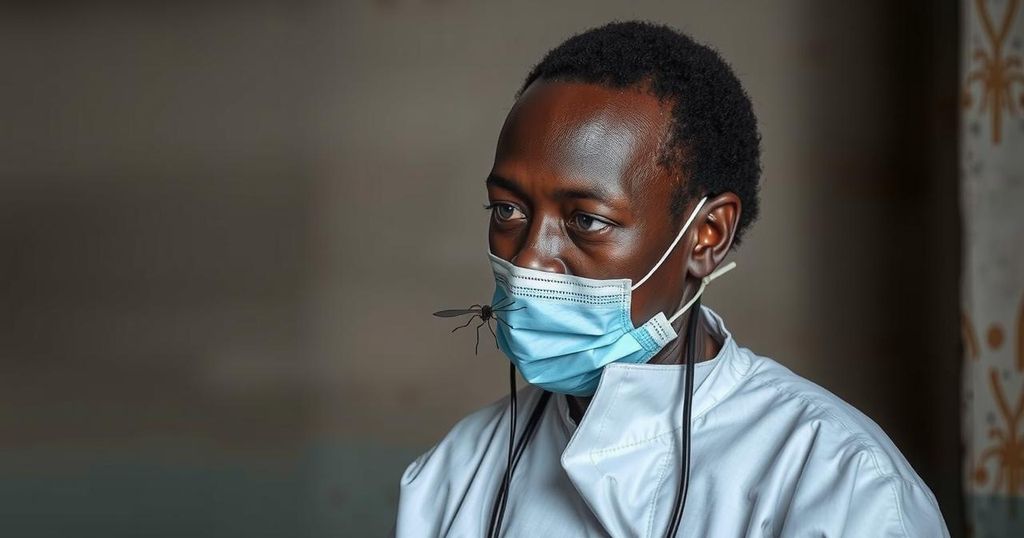Technology
AFRICA, AFRICA CDC, AFRICA CENTRES FOR DISEASE CONTROL AND PREVENTION, BBC AFRICA, BBCAFRICA, BBCAFRICA. COM, CLINICAL TRIALS, COM, CONGO (KINSHASA), DEMOCRATIC REPUBLIC OF CONGO, DISEASE, DISEASE OUTBREAK, DR CONGO, FACEBOOK, HOSPITALIZATION, KINSHASA, NG, NGASHI NGONGO, PANZI, PUBLIC HEALTH, UN, WORLD HEALTH ORGANIZATION
Marcus Li
0 Comments
Malaria Identified as Primary Cause of Deadly Outbreak in DR Congo
The Democratic Republic of Congo is facing a potential outbreak primarily linked to malaria, resulting in over 80 fatalities and flu-like symptoms among victims. While malaria has been identified as the main causative factor, concerns about a possible concurrent viral infection are also being investigated. Health authorities are intensifying their response and testing to clarify the situation.
The Democratic Republic of Congo (DR Congo) is currently confronting a perplexing health crisis that has claimed the lives of over 80 individuals in its south-western region. According to the Africa Centres for Disease Control and Prevention (Africa CDC), malaria has emerged as the most probable cause of this mysterious illness, which is characterized by flu-like symptoms including fever, headaches, respiratory difficulties, and anemia. Initial testing results have confirmed that the majority of cases are indeed cases of malaria, a disease endemic to the area and spread by parasites transmitted through mosquito bites. In addition, widespread malnutrition in the region has further worsened health outcomes for many affected individuals.
The health community remains vigilant, as the situation has become increasingly complex. Of particular concern is the recent death of an adult male patient who exhibited symptoms reminiscent of hemorrhagic fever. This incident has raised alarms regarding the possible occurrence of a concurrent viral infection alongside malaria. “This prompted speculation about a potential viral infection occurring at the same time as malaria,” stated Dr. Ngashi Ngongo of the Africa CDC. In response to these developments, samples from the deceased patient have been dispatched to Kinshasa, the capital of the Congo, for further analysis, with results anticipated in the forthcoming week.
Comprehensive investigations into the outbreak are being intensified by the Africa CDC, alongside the United Nations’ World Health Organization (WHO) and other relevant agencies. These organizations are undertaking additional testing and research to elucidate the full scope and cause of this outbreak, which remains an urgent health concern for the region.
The Democratic Republic of Congo is located in Central Africa and is known for its high prevalence of malaria, a disease that poses significant health risks to its population due to factors such as poverty, unstable health systems, and environmental conditions conducive to mosquito breeding. In recent weeks, the emergence of an unidentified illness that has resulted in numerous fatalities raised alarm bells among health authorities. Malaria has long been a persistent threat in DR Congo, but the concurrent symptoms linked to viral infections have complicated the public health response, warranting urgent investigation and testing.
In summary, the Democratic Republic of Congo is grappling with a significant health crisis likely driven by malaria, exacerbated by malnutrition and potential co-infections with viral illnesses. The Africa CDC and WHO are stepping up efforts to investigate this outbreak thoroughly. Rapid testing and analysis are crucial in determining the precise nature of the illness affecting the population, which remains critical for effective management and prevention strategies.
Original Source: www.bbc.com




Post Comment